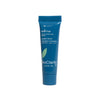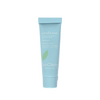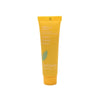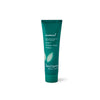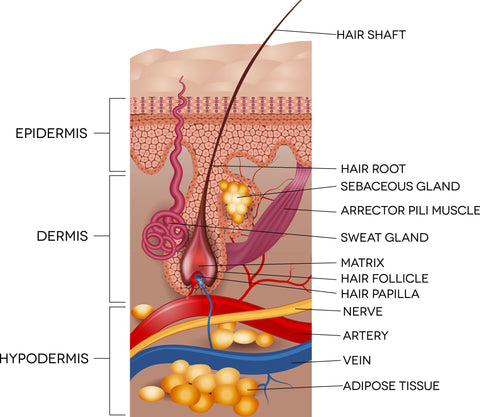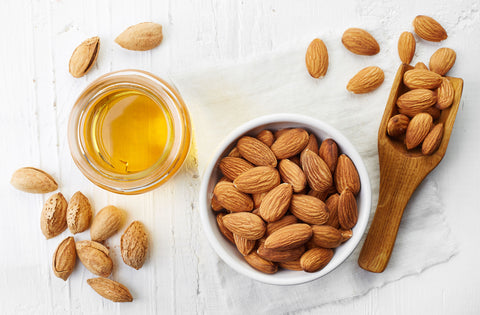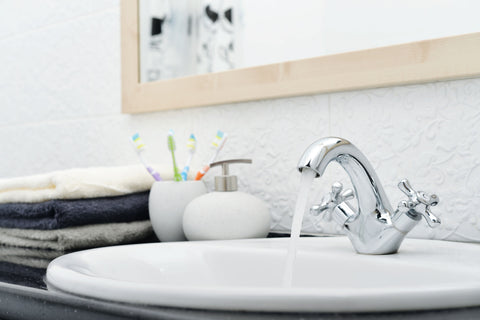20 Tips On How To Keep Skin Clear
By Abby Vinas
Skincare Tips
•
0 Comments

Our skin is the largest organ of the body and is composed of multiple components, including water, lipids, proteins, and varied chemicals and minerals. The epidermis plays a vital role in health: it’s designed to protect our insides from germs and infections. Not only does it serve as one of our body’s greatest protectors, but it also helps us regulate temperature, maintains our water and electrolyte balance, and helps us sense both pleasant and painful stimuli. Skin is regenerated every 27 days for the average person, but without the proper skin care, significant physical and mental health consequences can occur.
Daily life and repeated contact with environmental stressors can result in harsh consequences for the skin. It’s essential to determine the practices that can keep your skin looking and feeling its best, leaving it in the best possible position to perform its important functions. With that being said, skin care can be confusing to navigate. With a multitude of products available in the market and varying advice from industry professionals, determining the best care regimen for your specific skin type is less than straightforward, especially if you’re dealing with individualized skin conditions like acne.
Our Skin Structure
To learn how to best treat the skin, it’s important to understand how it’s constructed. The skin is made up of three layers.
Epidermis
The top surface layer is known as the epidermis. It’s the layer responsible for protecting the body from the environment, and features three different types of cells, which include keratinocytes that produce protein, melanocytes that produce skin pigment, and Langerhans cells, which prevent foreign objects and substance from permeating the skin. The epidermis is composed of five smaller layers, including the stratum germinativum, stratum spinosum, stratum granulosum, stratum lucidum, and stratum corneum.
Dermis
The middle layer of the skin is known as the dermis, and this layer is what gives the skin an appearance of fullness. The dermis contains blood vessels, pores (made up of hair follicles and sebaceous glands), and collagen and elastin. Collagen and elastin are essential to skin vitality, as they offer both support and elasticity to keep skin looking vibrant.
Hypodermis
The fatty and final layer of the skin is called the Hypodermis. It holds sweat glands and contains collagen and fat cells. This layer is tasked with regulating body heat and keeping our inner organs safe.
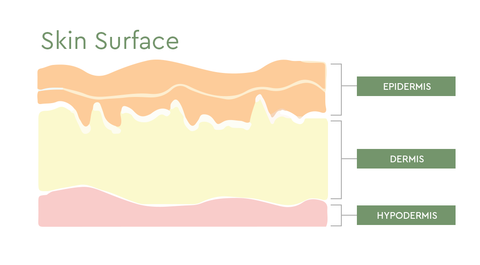
Understanding Your Skin Type
To better treat your skin, it’s important to accurately understand why my skin is diagnose and understand your particular skin types. According to WebMD, there are five main categories of skin type: normal, dry, oily, combination, and sensitive.
Normal Skin
Those who have a normal skin type exhibit skin with few imperfections, and rarely experience breakouts. The skin is often smooth and free of blemishes, and can handle a variety of products without fear of harsh reaction. Pores are barely visible with this skin type, and the skin tends to be less sensitive.
Dry Skin
Those with dry skin type may exhibit barely visible pores, and feature a dull, rough complexion. The skin may feel less elastic and sag a bit more, with more visible lines. Red, irritated patches are also commonly observed in those with dry skin type. Dry skin can easily peel and crack, and may become rough and scaly, particularly on the limbs. It doesn’t produce adequate oil levels, and has a hard time maintaining and retaining healthy oils. Dry skin is very prone to quick aging.
Oily Skin
Oily skin produces a larger amount of sebum, and is often characterized by larger pores, a shiny complexion, and the heightened appearance of acne. If you're asking yourself "why is my skin oily?", it is likely a result of hereditary factors and hormone levels. Oily skin is less susceptible to harsh skin effects associated with aging.
Combination Skin
Combination skin may see various parts of the face that are dry, with flaking or scaly patches, and other portions may be oily. Most commonly, these oily patches are observed in the T-zone, which includes the nose, chin, and forehead. These areas feature more active sebaceous glands that produce higher amounts of oil. Combination skin type may also refer to skin that is sensitive to seasonal changes.
Sensitive Skin
Sensitive skin type can be harder to characterize, because it can mean different things depending on the person. Sensitive skin is easily irritated, and may have a propensity for inflammation.
The Importance of Moisturizing
It’s essential to moisturize the skin to help it combat the daily wear and tear of life, and should be a part of every skin care routine, regardless of skin type. The right moisturizer can help your skin tone appear more vibrant, even out the texture of the surface of your skin, and cover up blemishes and imperfections.
For Oily Skin
Many of those with oily skin mistakenly believe that moisturizers will only exacerbate their skin’s oiliness and the side effects that presents, including acne breakouts. However, using the right moisturizer can help oily skin stay hydrated and supple. Use a water-based and non-comedogenic moisturizer since non-comedogenic skincare products are formulated not to clog pores, making them the best fit for oily skin.
For Dry Skin
Moisturizer is essential for dry skin types. Oil-based moisturizers can help keep the skin moist and supple, and heavier moisturizers may be beneficial for those dealing with cracking and flaking skin. Those with severe dry skin may need to reapply moisturizer throughout the day at different intervals.
For Combination Skin
Choose oil-free moisturizers for combination skin type. If your skin tends to go through dry and oily spells, use varied types of moisturizers to handle specific needs when necessary.
For Sensitive Skin
Sensitive skin can easily become inflamed and irritated if subjected to harsh chemicals or allergens. The best moisturizers for sensitive skin types don’t contain fragrances or dyes, as these tend to be a catalyst for irritation.
The Facts Behind Facials
When thinking of skin care, many conjure up images of pricey facials. Many men and women struggle with the concept of this popular skin care treatment—are facials effective or unnecessary? The answer is not exactly straightforward; depending on your skin, it can be helpful or harmful. While not necessary for the cultivation and care of radiant, healthy skin, facials can be a beneficial addition to a regular skin care regimen. However, if a facial is performed incorrectly, or the wrong products are used, your skin can face significant damage.
According to WebMD, facials might not actually be all they’re cracked up to be, unless you’re willing to spend a bit more. Oxygen facials have become a popular (and pricey) option, with celebrities hocking the benefits through their social media outlets. However, it’s been found that these facials have no significant, observed success to base their claims on; no clinical studies have demonstrated their effectiveness.
Benefits of a Facial
A facial can thoroughly cleanse the skin by softening and removing comedones (blackheads and whiteheads) through manual extraction. A facial may temporarily improve dehydrated skin with a nourishing mask and restore the skin’s natural barrier operations for a short time. Some facials involve skin exfoliation, with either a gentle scrub ointment, chemical peel, or mask that is peeled off to reveal smoother skin underneath.
Drawbacks of a Facial
Sensitive skin types may not fare well in facials, as most are not customized to individual skin types. Your skin may be allergic to certain products used, and if an esthetician does not properly prep or treat the skin, you may find yourself leaving with a worse breakout or irritated skin. Facial benefits tend to be temporary, so the money may not be worth the potential impact. Money may be better spent with dermatological treatments or daily use home products like the ones created by BioClarity if the goal is acne prevention and reduction.
What Facials Can’t Do
Many pursue facial treatments for the wrong reasons—facials won’t cure skin conditions like acne and rosacea, can’t completely eliminate circles under the eyes, or lift saggy skin. If your skin has dark marks and blemishes, facial treatment likely won’t alleviate these, at least in the long run. Many facials also promise a detoxification of the skin, but this is incorrect: your skin doesn’t contain any toxins that your liver and kidneys can’t deal with on their own.
Top 20 Skin Care Tips
We’ve compiled the top 20 skin care tips our experts deem the most successful in helping you achieve clear, supple, healthy skin. These clear skin tips and strategies on how to keep your skin clear are proven to be helpful, with no tricks and no gimmicks.
1. Sun Protection
Can the sun prevent acne? Contrary to popular belief, sun exposure actually makes breakouts worse. Using sunscreen is inarguably the most important thing you can do for your skin. With skin cancer rates on the rise, it’s important to find the right type of sunscreen (look for 30 SPF protection and above) and be diligent with its application. If you’re looking for a chemical-free sunscreen, look for brands that contain zinc oxide. If you do use a chemical sunscreen, apply it at least 20 minutes prior to sun exposure. While protecting your face is important, don’t forget to spread the sunscreen onto your neck and ears, along with the rest of your body. Keep in mind that most sunscreens stop working generally after three hours, so reapplication is vital.
Sun protection is about more than sunscreen. Don’t forget the sunglasses; squinting in the sun can lead to the appearance of crow’s feet and other wrinkles on the skin, as the skin around your eyes is the thinnest and easily damaged. Choose polarized sunglasses to help protect sensitive eyes and keep your skin looking its best. Sponge on your sunscreen to ensure it gets into all those nooks and crannies and absorbs better into your skin for improved protection.
More than sun-proof. Life-proof.
Protect your face and body from harmful UV rays, free radicals, blue light, and environmental pollutants with these non-nano 100% mineral zinc oxide sunscreens for everyday use.
Protect Your Glow2. Use Moisturizer
Our next clear skin type we touched on earlier and will repeat it here; moisturizer is essential. Find a moisturizer that works well with your skin type and apply it diligently on a daily basis. This will keep your skin feeling fresh and supple, prevent against wrinkles, and help your skin look radiant and glowing. Dryness can also make acne worse, so moisturizer is important to help prevent acne lesions.
Recommended Product: bioClarity Hydrate - Skin Smoothie
For extra help with hydration, use a super-hydrating serum like Drink It Up to soak your skin in moisture and help keep your complexion soft, dewy, and glowy.
Endless Hydration
Quench your skin’s thirst with this super-hydrating serum that also helps fight signs of aging and keeps your skin soft and plump.
Stay Hydrated3. Put Down the Cigarettes
Cigarettes and tobacco wreak havoc on the body, and the chemicals found in tobacco products can have significant and long-lasting effects on the skin. This natural skin care tip can be tough, but smokers often exhibit fine lines around the mouth as a result of the motion of dragging a cigarette, and smoking can accelerate aging, with some statistics purporting that smokers look 1.4 years older than nonsmokers. Smoking can also cause vasoconstriction, which involves narrowing of the blood vessels. This may limit oxygen-rich blood flow to vessels in your skin and make it hard for your skin to heal.
4. Eat Citrus
There’s been significant research that shows citrus like lemon can help bolster liver and kidney function. There’s also been noted connections between healthy inner organs and healthy skin. Citrus contains a healthy dose of Vitamin C, which has been purported to destroy free radicals inside the body, resulting in radiant, glowing skin.


Another vitamin that has been known to fight against free radicals is Vitamin A, however in this case, there can be too much of a good thing. Does Vitamin A work on acne? - read more here.
5. Be Aware of Your Smartphone
We’re all attached to our phones, these days, but if you tend to talk on the phone a lot, consider the bacteria you’re adhering to your face for the duration of your call. This skin care tip is tricky, as our phones are dirty; we place them on random surfaces, where dirt and bacteria are easily picked up. We then hold our “infected” phone directly to our face. Occasionally wipe your phone screen clean with a dab of rubbing alcohol.
6. Choose Your Makeup Strategically
If you have acne-prone skin, it’s important to avoid products that contain chemical and natural ingredients known to irritate the epidermis. If the skin is repeatedly exposed to irritants, inflammation can exacerbate and result in a weakened skin barrier, decreased healing, and a ruddy complexion. While there are no significant studies that prove makeup causes acne, many dermatologists recommend patients avoid certain types of cosmetics to avoid skin irritation. These are designed to prevent clogged pores and alleviate the negative effects that wearing layers of makeup for prolonged periods of time can have on the skin.
Talking about female products, professionals have been prescribing birth control pills for the treatment of acne for many decades. There is a strong connection between birth control and acne reduction. Always speak with your doctor before taking oral contraceptives and work with your dermatologist to determine if birth control is a necessary method for your acne treatment.
7. Get Your Beauty Sleep
The better rested you are, the better your body functions and this affects the function and appearance of your skin. Aim for eight hours of good sleep a night. Use a special, smooth pillowcase to cradle your head, and try to sleep on your back to avoid facial skin rubbing and irritation throughout the night.
8. Don’t Over-Wash Your Skin
Those dealing with acne and other skin conditions often make the mistake of increasing the amount of times they wash their skin during the day, but this can actually have adverse effects. Washing too much can dry out the skin and lead to irritation and inflammation. Washing twice a day is generally the right amount of attention, but be sure to carefully monitor how your skin reacts and switch to washing once daily if needed.
9. Practice Gym Skin Care
While exercising can have some major benefits for skin vitality, the sweat worked up and equipment used during a workout can affect the skin. Remove your makeup before working out; forgoing this step can result in Acne Cosmetica, a subtype of acne that features small, non-inflammatory red bumps. Wipe down any shared gym equipment you may use beforehand. After leaving the gym, immediately give your face a wipe down to blot away excess sweat and kill any bacteria left behind from shared equipment. Change out of sweaty, restrictive clothes as soon as possible, as prolonged exposure may lead to Acne Mechanica, a subtype of acne often experienced by athletes and students.
10. Don’t Pop Your Own Pimples
It’s tempting, but popping your own pimples and extracting your own blackheads can cause irreparable damage to the skin. It is not the answer to getting rid of pimples the right way. While it may have immediate effects on the size and appearance of a single pimple, in reality, you’ll only worse your pimple and exacerbate its appearance in the long run. The science behind it is simple: when the skin cell is ruptured, bacteria that was once contained inside the pustule or papules can spread to other cells, or be pushed deeper back into the pore. This can result in larger, more painful pimples, and the creation of new acne lesions that spread across a larger portion of your skin. In some cases, a pimple can be picked so deeply that it leaves behind a scar.
11. Exercise
Burning numerous calories can trim your waistline, provide a rush of endorphins, and it turns out, have some pretty amazing benefits for your skin. Exercising helps increase blood flow, which carries oxygen and essential nutrients to cells throughout the body. This blood flow may also help carry off free radicals and other waste products from the skins, helping the liver flush the body of toxins. A healthier inner body results in positive physical effects, and the skin is no exception to this rule.
12. Brew Tea
Tea has been used for centuries to heal and abate skin conditions, and its uses seem to be endless. Some swear that caffeine found in tea can help minimize the blood vessels underneath the skin, lessening the appearance of dark circles under the eyes. For those who suffer from razor burn, black tea can be used to calm itching and redness after shaving, thanks to the tannins contained in the tea. Can green tea cure acne? It's known for its anti-inflammatory properties, and can be used topically for a variety of skin-related issues, including sunburn, bug bites, and breakouts.
13. Exfoliate
Our skin regenerates constantly, with each skin cell having a life span of around 27 days. Exfoliation helps remove these dead skin cells, and prevents them from building up on the surface of the skin, which will prevent pores from becoming clogged. Exfoliation is all about balance. Exfoliating too much can be harsh on the skin, and exfoliating too little can result in the buildup of dead skin cells that clog the pores and result in blemishes. Exfoliation can help resurface the skin, leaving smooth, regenerated cells that give your skin a look of vibrancy.
14. Pack a Bag of Almonds
Here’s another snack idea to try. Many dermatologists recommend almond snacking to their patients. Why? These little nuts pack a mean punch of antioxidant and moisturizing properties. They’re packed with vitamin E, a powerful sun blocker, and may help protect skin cells from UV light and other negative environmental factors that produce free radicals.
15. Practice Stress Management
Stress can exacerbate the appearance of acne, so it’s important to keep your stress levels under control. Practice yoga, exercise regularly, and consider meditation to help stay calm. Stress and acne can revolve in a vicious cycle, but preventing one can help the prevention of another.
16. Keep Hair Out of Your Face
Hair doesn’t cause acne or pimples, but it can cause irritation and force sweat against the skin, which may result in blemishes. If you have long hair, be sure to tie it up off of your face when working out or in hot, humid conditions, and keep in mind that tight hats can cause irritation and sweat, which can result in breakouts.
17. Remove Your Makeup
This tip may seem obvious, but when ignored, your skin will face the consequences. Always remove your makeup before going to bed. Makeup attracts free radicals found in the environment, and if left to sit on your face, can cause collagen to break down. If you don’t remove your makeup, you’re not allowing your skin to recover from the wear and tear of the day.
18. Avoid Hot Water
If you want to keep clear skin avoid using hot water when washing your face. This can strip the skin of moisture, effectively drying it out. Many believe hot water opens up the pores and makes them easier to clean, when in fact it just causes the skin to swell, making the pores look more open.
19. Limit Your Dairy Intake
There have long been reports that dairy intake can worsen acne, and recent studies have shown that it may be directly linked. In one study, 47,355 women participants were asked about their milk consumption habits and researchers found a strong correlation between milk and the prevalence of skin blemishes. There has also been talk about the relation between chocolate and acne; unfortunately that might mean it's time to put down both the glass of milk and the sweet stuff. Some drink milk because they've heard Vitamin B5 and acne have a positive relationship and milk is packed with Vitamin B5. It turns out that doesn't have as much merit as reported, so keep your dairy to a minimum.
20. Consistency is Key
It’s important to be consistent with your skin care routine. Skin care is a lifetime system, and maintaining vital and healthy skin care means putting in the effort each day. Following our guide on how to keep clear skin can only help so much. Be consistent with your treatments, and keep these tips up over the long term.

Abby Vinas
Abby Vinas has long been an active member of the holistic health community, advocating in favor of its benefits to both our physical and emotional well-being. Her commitment to leading a healthy lifestyle has made her an authority on self-care practices. Abby is passionate about fitness, nutrition, and proper skincare, and is also an avid lover of avocado toast and dog-petting.
